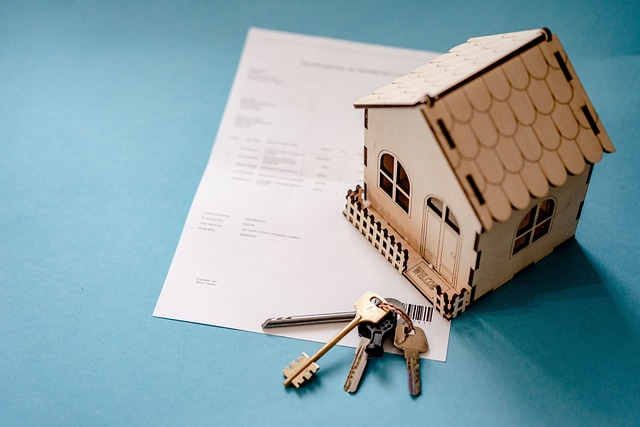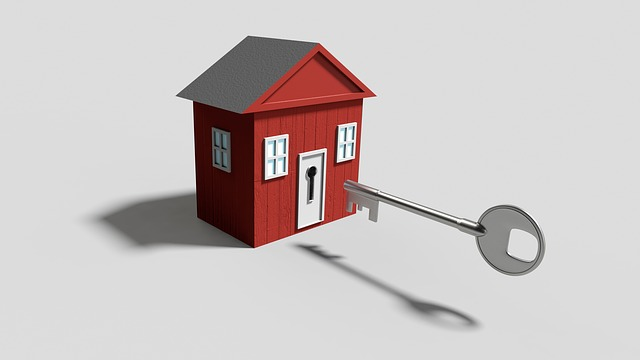
Are you a property owner looking for help in managing your investments? A property manager who offers property management services may just be the solution that you need.
From finding quality occupants to collecting rent payments, they can make sure that all of your properties run like a well-oiled machine.
In this blog post, we’ll explain exactly what a real estate property manager does—from start to finish —providing you with an extensive guide so that you can easily determine if investing in one is worth it.
Property Managers – what do they do and why does it matter?

Property managers are hired by commercial and residential property owners to handle the day-to-day operations of their real estate. They act as a middleman between property owners and tenants, making sure that both parties are satisfied with the rental arrangement.
Hiring a company that offers property management services can be beneficial for many reasons. For one, they have a wide knowledge of the real estate market and can help you determine the most competitive rental rates for your properties.
They also have experience in dealing with difficult renters and know how to handle any disputes that may arise. Additionally, property managers save you from having to deal with the day-to-day tasks of being a landlord, allowing you to focus on other important aspects of your life or business.
The Process of Finding Tenants
One of the main responsibilities of a property manager is finding quality tenants for your properties. This involves marketing the property, conducting background and credit checks, and setting up showings for prospective occupants.
A property manager oversees and has access to various listing service platforms and knows how to effectively advertise your property to attract the right people.
Once suitable tenants are interested, the property manager will conduct thorough screening processes to ensure they are reliable and financially capable of paying rent.
This includes verifying employment, checking references, and running credit checks.
Rent Payments and Financials

Property managers also handle the financial side of being a landlord. This includes collecting rent payments, setting rental rates, and maintaining accurate financial records for tax purposes.
They are responsible for making sure that people staying on your property pay their rent on time and handling any late payments or delinquencies.
In addition to managing rent payments, property managers can also help with budgeting and financial planning. They have a good understanding of market trends, maintenance costs, and other expenses related to owning property.
This can be especially helpful for novice landlords who may not have experience in these areas.
Addressing Maintenance and Repairs

Maintenance is a crucial aspect of managing rental spaces, and property managers take on this responsibility on behalf of the proprietor.
They are responsible for conducting routine property maintenance checks, addressing tenant requests for fixes, and hiring contractors when necessary.
Property managers also have a network of trusted professionals such as plumbers, electricians, and handymen that they can call upon in case of any emergencies or major repairs.
This saves owners from having to personally handle these situations and ensures that repairs are done in a timely and efficient manner.
Dealing with Tenant Issues

Unfortunately, not all tenants will be easy to deal with. In case of any conflicts or disputes between renters and owners, property managers act as the mediator and handle these issues.
This can include dealing with noise complaints, lease violations, or other disputes that may arise during their stay.
Property managers are well-versed in the laws and regulations surrounding renting and can provide guidance on how to approach these situations.
The Common Tasks of Property Managers

Apart from the responsibilities mentioned above, property managers also perform a variety of other daily operations to ensure that your rental properties are running smoothly.
Some of these tasks include:
- Conducting regular property inspections to identify and address any potential issues.
- Marketing vacant properties and coordinating with potential tenants for showings.
- Maintaining accurate records of all financial transactions, including rent payments, expenses, and taxes.
- Developing and enforcing lease agreements and ensuring that all occupants comply with the terms.
- Responding to complaints or requests in a timely and efficient manner.
- Monitoring and managing property budgets to ensure profitability.
- Keeping up-to-date with laws and regulations related to real estate and rentals.
By taking on these tasks, property managers save property owners time and effort while ensuring that their buildings are well-maintained and profitable.
They act as the go-to person for all things related to your property, making it easier for lessors to focus on other aspects of their lives or business ventures.
Furthermore, property managers also bring a level of professionalism and expertise to the table. With their knowledge and experience in real estate, they can provide valuable insights and advice on how to improve your properties’ value, efficiency, and profitability.
Qualifications and Skills Needed for a Successful Property Manager

To be a successful property manager, one must possess a combination of skills and qualifications.
These may vary depending on the specific role and responsibilities required by the landlord, but some common ones include:
- Excellent communication and interpersonal skills to effectively interact with tenants, landlords, and contractors.
- Strong organizational and time-management abilities, allowing them to handle multiple tasks and responsibilities.
- Knowledge of laws and regulations related to real estate and rental properties.
- Experience in property management or a related field, such as real estate or business administration.
- Familiarity with financial management and budgeting for rentals.
- Attention to detail and problem-solving skills to address any issues that may arise.
Property Owners Questions to Ask a Potential Property Manager Before Hiring Them

If you are considering hiring a property manager, there are several important questions you should ask to ensure that they are the right fit for your properties. Some of these questions include:
- How many years of experience do you have in property management?
- Can you provide references from previous clients or landlords?
- What services do you offer, and what is included in your fee?
- How do you handle tenant disputes or issues?
- How often do you conduct property inspections, and what is your process for maintenance and repairs?
- Can I see an example of a financial report you have prepared for another rental property?
How To Get Started with a New Property Management Company
If you have decided to hire a property manager for your properties, there are a few steps you can take to ensure a smooth transition and start off on the right foot:
- Clearly communicate your expectations and goals for your rental properties with the new property management company.
- Provide them with all necessary information about your properties, including lease agreements, occupant information, maintenance schedules, and financial records.
- Discuss their proposed management plan and make any necessary adjustments or clarifications.
- Develop a system for regular communication and updates with the property manager.
- Set up an initial meeting with residents to introduce them to the new property manager and address any concerns or questions they may have.
By following these steps, you can establish a strong working relationship with your new property management company and ensure a successful collaboration in managing your properties.
Remember, open communication and clear expectations are key when working with a property manager.
Conclusion
From finding quality occupants to handling maintenance and financials, property managers take on a wide range of responsibilities, saving property owners time, money, and stress.
If you are a landlord looking for assistance in managing your properties, hiring a property manager may be worth considering.
So, if you’re tired of the day-to-day management and tasks of being a landlord and want to ensure that your properties are running smoothly, then hiring a property manager may just be the solution for you. Don’t hesitate to do your research and find a reputable property manager who can help you achieve success in your real estate investments.
With our expertise and knowledge, you can sit back and watch as your rental properties become a well-oiled machine.
Leave a Reply